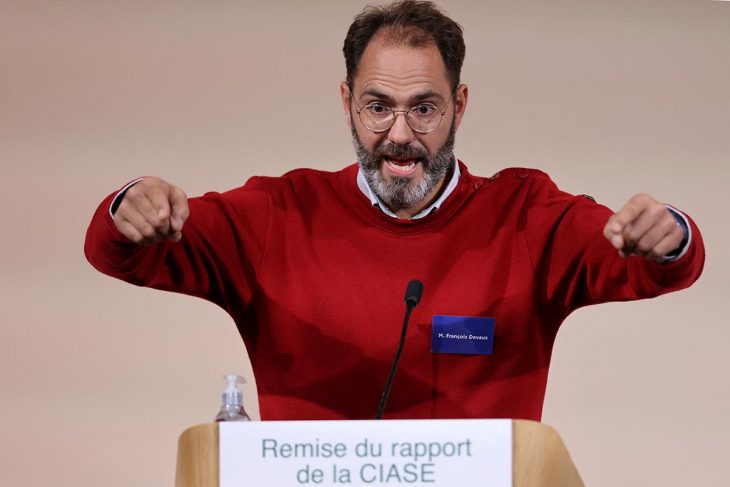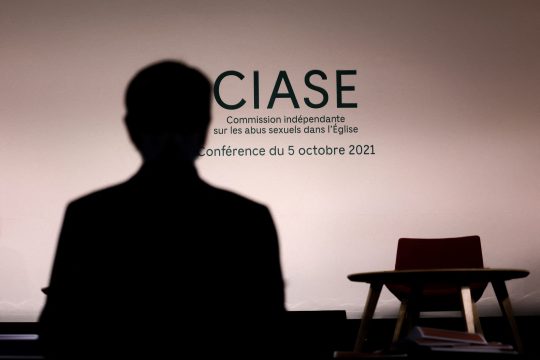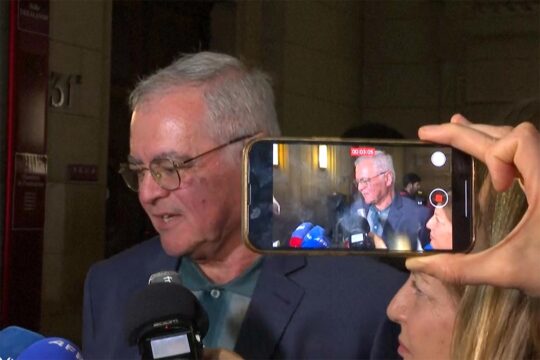"This question of compensation, it is not and should not be a gift. In the spirit of the Commission, it is an obligation." Jean-Marc Sauvé did not mince his words during the presentation of the report that bears his name on October 5 in front of French bishops. Standing on the dais before the president of the Independent Commission on Sexual Abuse in the Church (Ciase), François Devaux, a victim and founder of the association La Parole libérée (now dissolved) pointed at the bishops and declared: "You must pay for all these crimes!"
In a shocked France, reparation for the hundreds of thousands of victims of sexual abuse within the Church appears non-negotiable. "This reparation is very important," says Brother Michel Laloux, head of the Franciscan congregation and member of the Conference of Religious Orders of France (Corref), which initiated Ciase along with the Conference of Bishops of France. "Even if the victims do not want financial compensation, which could signal the Church buying their silence, a sum of money could be symbolic for them in recognition of the facts," he specifies.
In concrete terms, says Jean-Marie Burguburu, a lawyer and member of Ciase, this sum could reimburse part of the expenses incurred by a victim for psychotherapy or psychoanalysis over a long period of time, compensate for the loss of a job because of health problems due to a secret that was too heavy to bear and reimburse legal expenses.
Given the diversity of the victims' backgrounds, "they will have to come forward individually and claim what they feel is their due", says Jean-Marie Burguburu. The Commission rejects the idea of a lump sum, but recommends "individualizing the calculation of the compensation owed to each victim" and "favouring a calculation method that takes into account the harm suffered rather than referring to categories".
How much will it cost? The report’s figure of 330,000 victims (alive at the time of writing) of sexual assaults by clerics, priests, and laity practising in the Church (from 1950 to 2020) is a "floor" figure, in other words the tip of the iceberg. "Even with the best will in the world, it is very difficult to put a figure on the reparations. But it is already huge that the report insists on the need for the Church to make individual reparations," says Jean-Pierre Massias, president of the Francophone Institute for Justice and Democracy.
The abuser and their institution must pay
The compensation of victims, the Sauvé report recommends, should be handled by an "independent body, external to the Church" which will have "the triple mission of receiving the victims, offering mediation between them and the aggressors (if they are still alive and if they agree to take part in the process) and the institutions to which they belonged at the time of the aggression, and of arbitrating the differences". This body has not yet been set up. Its creation is expected to be on the agenda of the General Assembly of the Bishops of France, which will be held from November 3 to 8 in Lourdes (southern France).
On the financing of reparations, the report is clear, indicating that they must come from "the patrimony of the aggressors and the Church of France". The Corref, which groups about 400 religious congregations, specifies that it will propose concrete actions. "We are sure of one thing: compensation must be paid by the institution to which the aggressor belongs. If the institution in question no longer exists, there will be a fund to which the victim can make a claim," says Brother Laloux.
At least two billion euros
According to the Conference's external relations department, "the bishops are currently studying the report and will not be able to express themselves on the subject [of reparations] until the end of the Plenary on November 8”. In July 2021, the bishops of France already created the Selam fund for "relief and the fight against abuse of minors" with bishops' personal money and donations. This fund aims to collect 5 million euros in a first phase, according to the French Bishops' Conference. This contradicts the Sauvé report, which clearly rules out "appealing for donations from the faithful and making the financing collective".
With such amounts "we are very far from what’s necessary", says Olivier Savignac, spokesman for the victims' association Parler et revivre. "If you take the report’s estimate of at least 330,000 victims [in France], it would take at least two billion euros if we wanted to compensate all victims with between 5,000 and 10,000 euros," calculates Savignac, who calls on each diocese to put aside at least 5% to 10% of its real estate "even if that means some dioceses might go bankrupt”. Devaux, for his part, is calling for an "audit of the Church's own funds".
There are precedents in other countries following similar commissions. The amount attributed to victims in Belgium was 4.6 million euros, in Germany 10.3 million, in the Netherlands 27.8 million, and it exceeded 4 billion dollars for the American Church (leading to the bankruptcy of the diocese of Boston).
On this question of financing, Ciase does not go any further. "Our job was to take stock of the situation," says Burguburu. "The situation is now in the hands of the Conference of Bishops of France. They must first get to grips with the report, to understand the drama and make the right choices."
Symbolic acts… and profound changes
Financial reparation "cannot be without a humble acknowledgement of responsibility on the part of the Church authorities for the faults and crimes committed in its midst", the report states. When questioned by Ciase, victims asked for more symbolic reparations, including "public ceremonies, church services remembering the suffering inflicted" or a "memorial to the victims and their suffering." When asked by Ciase, Savignac stressed the need for a "memorial process of public recognition of the acts and deeds committed by the Church", which could be through a law similar to the one of January 29, 2001 on recognition of the Armenian genocide. According to him, "this would make it possible to consider the victims as a whole; today only one or two victims out of ten can expect a trial". In addition to the report, a "literary memorial", a collection of victims' words entitled "From Victims to Witnesses", has already been published.
"It is very important that this work has taken place and that victims are asking for an official apology and recognition of the deep and serious problem of sexual abuse in the Church," says international jurist Anna Myriam Roccatello, deputy executive director of the International Center for Transitional Justice. "Uncovering such a repressed, denied truth may change the system of power that has allowed those in positions of responsibility to rape and abuse those who are not."
Nadia Debbache, former lawyer for the association La Parole libérée which brought together victims of Father Preynat during his trial in March 2020, doubts the capacity of the Church to make reparation. "If you have listened carefully, since the report was handed over Church leaders have never used the terms 'responsibility' or 'reparations', but rather 'financial contributions'. It's an indicator, a very bad one, that the Church is not ready," she says.
Bishop Eric de Moulins-Beaufort, president of the French Bishops' Conference, expressed to the victims his "shame", his "shock" and his "determination to act with them so that the refusal to see and hear, the will to cover up the facts disappear" from the Church. But a few hours later, in an interview with France Info, he added that "the confidentiality of Confession is superior to the laws of the Republic". "This remark is symptomatic of the state of mind of this Church hierarchy," laments Debbache, who promises she will continue "to be at the side of victims, who are likely to come forward after the publication of the report".
How many will they be? What will they receive, and when? Reparations will take time, but the Ciase report has put the Church's back against the wall.







